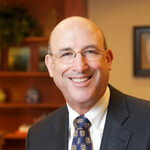- Adult Heart DiseaseDiseases of the arteries, valves, and aorta, as well as cardiac rhythm disturbances
- Pediatric and Congenital Heart DiseaseHeart abnormalities that are present at birth in children, as well as in adults
- Lung, Esophageal, and Other Chest DiseasesDiseases of the lung, esophagus, and chest wall
- ProceduresCommon surgical procedures of the heart, lungs, and esophagus
- Before, During, and After SurgeryHow to prepare for and recover from your surgery
January 27, 2017

If you have had heart surgery in the past few years, you may have recently received a letter from your hospital or heard other news stating that you could be at risk of developing a rare but potentially serious infection from a piece of equipment that was used during your operation.
Heater-cooler devices (HCDs) are routinely used during heart surgery to regulate body temperature while a patient is on the heart-lung machine (cardiopulmonary bypass).
Recent evidence suggests that some HCDs were contaminated with a rare bacteria named Mycobacterium chimaera during manufacturing. The bacteria from the HCDs can travel through the air and contaminate the operating room, as well as a patient’s heart and surgical wound during the procedure. The bacteria have caused serious infections in a small number of patients in the United States and Europe. The investigation into this matter is ongoing because the infections are both rare and can take years to develop, but here is what we know so far:
Though infections have been linked to five different manufacturers of HCDs used throughout the world, the US Centers for Disease Control (CDC) reports that almost 90% of infections have occurred with HCDs from the Sorin 3T heater cooler. This represents 60% of HCDs in the United States. All manufacturers are currently working with regulatory agencies to further evaluate and resolve the problem and instruct surgeons and hospitals on how to proceed.
It should be emphasized that this issue was thought to be created during the manufacturing of the HCDs; neither your surgeon nor your hospital were at fault.
Though the precise number of infected patients is unknown, there have been 339 reports related to HCDs to the Medical Device Report database between January 2010 and August 2016. Given that more than 250,000 cardiac surgical procedures using the heart-lung machine and HCDs are performed yearly in the United States, the overall chance of an HCD related infection is extremely rare. In hospitals that have reported at least one HCD related infection, the risk of getting infected is somewhere between 1 in 100 and 1 in 1000.
The bacteria related to the infections are known as nontuberculous mycobacterium (NTM). NTMs have a long latency period, meaning that they can remain quiet in the body for up to 72 months.
The average time for symptoms to develop after a patient becomes infected is 17 months. Making a diagnosis can be challenging because the bacteria take from 2 to 8 weeks to grow in a laboratory culture.
Symptoms from active infections include:
- Fever
- Sweating
- Fatigue
- Cough
- Shortness of breath
- Weight loss
It should be emphasized that many of these symptoms commonly occur after heart surgery, particularly in the first few weeks after surgery, and are usually not the result of an NTM infection. However, symptoms that occur months after heart surgery and are persistent should be taken seriously. This is especially true if you had some kind of medical device implanted, such as a prosthetic heart valve or ring, a vascular graft to replace your aorta, or a left ventricular assist device. Once identified, these infections have been difficult to treat with death rates approaching 50%. This is expected to improve with earlier diagnosis and with the development of effective treatment strategies. Current treatment consists of a combination of antibiotics for several months, along with surgical removal of infected heart valves, grafts, and other implanted devices.
The CDC has developed strategies for hospitals, health care providers, health departments, and patients to monitor those at risk, identify infections as they occur, and prevent infections from occurring in the future. Whereas most hospitals have chosen to notify all of their heart surgery patients about their potential risk of infection, others have opted not to if a thorough investigation has revealed no infections from their programs. Recommendations for patients include urgently reporting any suspicious symptoms to their primary care physicians. Remember, HCD-related infections are very rare but very serious. If you have no symptoms, inform your health care provider at your next wellness visit that you have undergone a cardiopulmonary bypass procedure to determine if you require further testing or monitoring for possible exposure to NTM. This will be particularly important if your cardiac surgery hospital has experienced any infections relating to the use of HCDs. If your primary care physician is unsure how to proceed, he/she will refer you to an infectious disease specialist to determine if further diagnostic testing is indicated.
The opinions expressed in this article are those of the author and do not necessarily reflect the views of The Society of Thoracic Surgeons.

